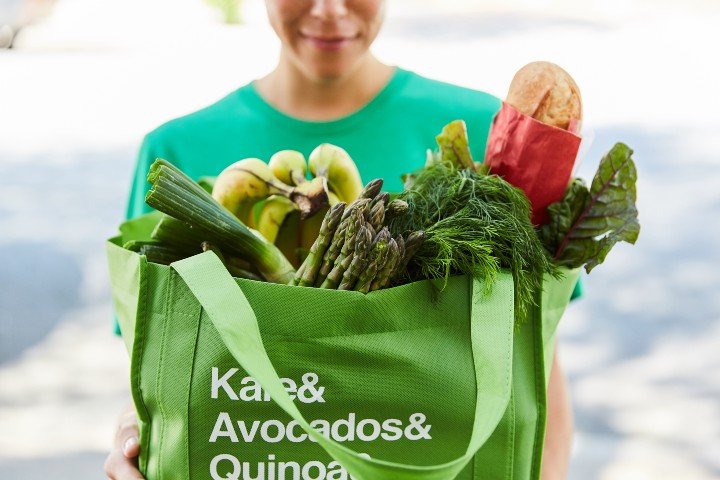The global food and grocery retail market was worth nearly $11.3 trillion in 2021, and it’s likely to grow right along with the population in coming years. The industry is a huge pie with a lot of slices. There are plenty of companies competing for consumers’ food dollars.
Best food stocks to buy
The best food companies have strong brands that compel consumers to pay up for their products, and they also enjoy economies of scale that keep costs low. Pricing power and cost advantages are particularly important now, with inflation squeezing budgets and supply chain costs rising.
While there are many food stocks to choose from, not all of them belong in your portfolio. Here are a few that stand out as the best food stocks:

1. General Mills
Packaged food giant General Mills (NYSE:GIS) owns a wide variety of well-known brands. The company’s brand portfolio includes Pillsbury, Cheerios, Häagen-Dazs, Progresso, Green Giant, Yoplait, and many others.
The COVID-19 pandemic benefited General Mills as consumers increased their consumption of food at home due to restrictions on restaurant dining. The company's core North America retail segment, driven by strength in organic products, meals, and baking, performed well throughout the pandemic.
Elevated inflation and economic uncertainty are likely to change consumer behavior, but General Mills has many brands that people are willing to pay for. This is already starting to show in the company’s results. While organic sales volume slumped 4% in the fiscal third quarter, higher pricing and mix changes more than made up for it.
General Mills’ pet segment, the result of the 2018 acquisition of Blue Buffalo, is particularly well positioned. Pet ownership boomed during the pandemic, and sales of premium pet foods have been on the rise for years. With pets increasingly viewed as part of the family, pet owners may be reluctant to trade down to cheaper pet food options.
General Mills stock has soared over the past couple of years, but it remains reasonably priced. The stock trades for around 19 times forward earnings, and it sports a dividend yield of roughly 2.85%. There’s plenty of economic uncertainty right now, but General Mills’ pricing power should help see it through.
2. Tyson Foods
Meat products will likely continue to be a staple of U.S. diets. If you’re looking to invest in the meat industry, Tyson Foods (NYSE:TSN) is a reasonable choice, especially if you want to bet on the continued consumption of meat.
Tyson certainly doesn’t have the pricing power of a packaged food company with well-known brands, given that meat is largely a commodity. Meat processing in the U.S. is highly concentrated among a small number of companies such as Tyson, which own a relatively small number of massive facilities. The company’s results are partly dictated by supply and demand for beef, pork, and chicken, with margins heavily influenced by pricing.
The meat industry has largely recovered from the challenges of plant shutdowns and COVID-19 outbreaks early in the pandemic. While inflation may lead consumers to choose cheaper cuts or reduce meat consumption, that’s not happening so far. Despite double-digit price increases across all of its categories in the second quarter of fiscal 2022, Tyson’s sales held up just fine, and profitability improved.
Tyson boosted its sales outlook for fiscal 2022 to between $52 billion and $54 billion, a sign that the company believes that higher prices won’t deter consumers all that much. Combined with a cost savings plan that could lead to $1 billion in savings by 2024, Tyson may be able to maintain its profits against the backdrop of inflationary pressures and supply chain constraints.
3. Mondelez International
Like General Mills, Mondelez International (NASDAQ:MDLZ) boasts a long list of well-known brands. These include Cadbury, Chips Ahoy!, Oreo, Philadelphia, Ritz, Wheat Thins, and many others. The company’s focus is on snack brands, and it sells products in more than 150 countries.
Mondelez expanded organic sales by 8.6% in the first quarter of 2022, and it wasn’t just due to higher pricing. Unit volumes rose in every geographic region, and the company faced no resistance boosting overall pricing by nearly 5%. Having a stable of iconic brands that consumers are unlikely to abandon sets up Mondelez well for an inflationary environment.
Mondelez sees organic sales growing by at least 4% this year, and it expects adjusted earnings per share to grow faster as higher prices offset increased costs. The war in Ukraine is having a negative impact on earnings, but the company still expects to produce at least $3 billion of free cash flow for the year.
Mondelez trades for around 22 times forward earnings, a bit pricier than General MIlls. But Mondelez’s geographic diversification and its strong slate of brands are attractive assets as economic uncertainty grows.
4. PepsiCo
PepsiCo (NASDAQ:PEP) is another packaged food company with a large portfolio of leading brands. On the beverage side of the business, Pepsi, Mountain Dew, and Gatorade top the list. On the food side, Lay’s, Doritos, Quaker Oats, and Cheetos are just a few examples from the company’s portfolio.
PepsiCo’s first-quarter results put the company’s pricing power on display. Organic revenue soared, thanks to a 10% increase in effective net pricing and a 3% boost in volume. Like Mondelez, consumers are so far accepting higher prices for PepsiCo’s products.
PepsiCo expects organic revenue and adjusted earnings per share to rise by 8% this year. In other words, the company anticipates being able to pass off rising costs to its customers in the form of higher prices. There’s a limit to PepsiCo’s pricing power, but the company hasn’t found it yet.
PepsiCo trades for around 26 times forward earnings, which is not exactly cheap. But the quality of the company’s brands certainly justifies a premium valuation.
Food industry sectors to watch
While General Mills, Tyson Foods, Mondelez International, and PepsiCo are great overall picks in the food industry, companies in more specialized sectors are worth a look as well. Here are a few categories to consider.
Plant-based food stocks
U.S. consumers already derive the majority of their calories from plant-based sources, and the companies above offer plenty of plant-based options. A big trend in recent years has been plant-based foods made to look and taste like meat and other animal-based foods.
Beyond Meat (NASDAQ:BYND) is a pure-play plant-based food stock, offering a variety of products built around pea protein. The company has run into some late pandemic headwinds, not to mention an onslaught of competitors. Revenue declined in the fourth quarter of 2021, and rising costs led to a massive net loss. The stock has taken a huge hit, but Beyond Meat is a stock to consider if you believe in the long-term potential of plant-based protein.
Grocery store stocks
For the most part, grocery stores have a limited ability to pass off higher costs to consumers. Inflation may put some pressure on grocery industry profits, but that’s not a reason to avoid the industry entirely.
One interesting grocery store stock is Sprouts Farmers Market (NYSE:SFM). Sprouts is a small chain with a few hundred stores and is heavily focused on specialty products. The company derives around two-thirds of its sales from “attribute-based” products -- with examples of those attributes including organic, paleo, keto, and plant-based. This differentiation from legacy grocery stores, combined with the potential to greatly expand its store network, makes Sprouts a food stock worth watching.
















